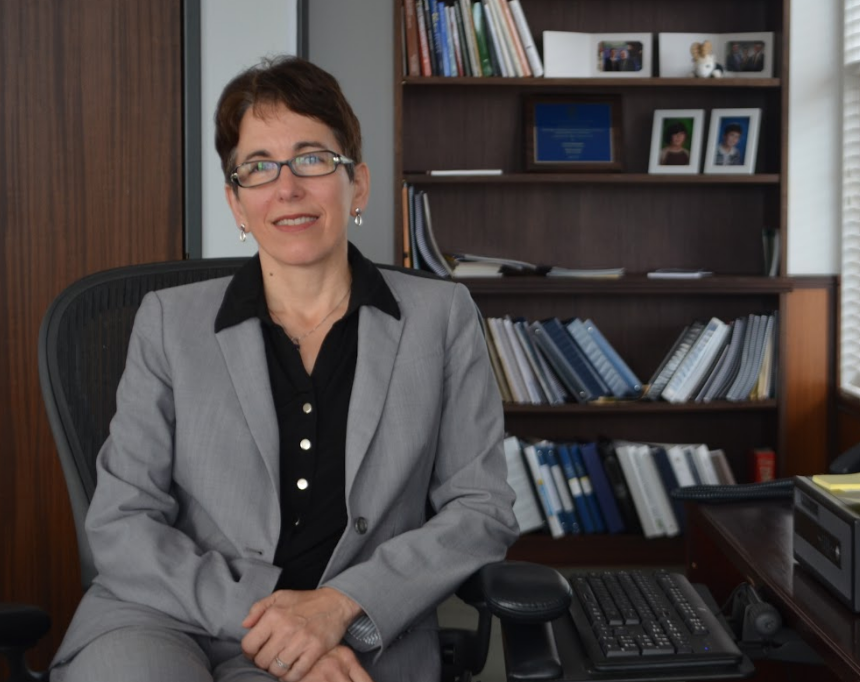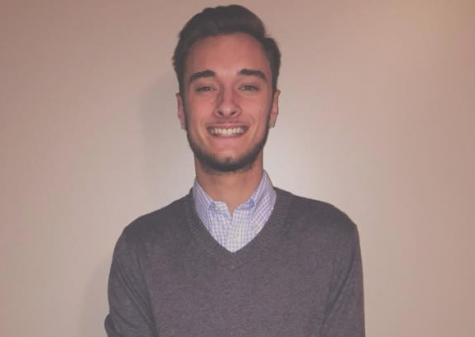As this academic year draws near to a close, so does the first year of Marisa Kelly’s stint as Acting University President. In a recent interview with The Suffolk Journal, Kelly reflected upon her time thus far in the high office– what has been accomplished as well as still needs to be worked on, the challenges she has faced and what her goals are going forward at Suffolk.
“I’m excited about everything we’ve accomplished together this year,” said Kelly. “But I don’t want that to suggest that I think everything is perfect. Every institution faces challenges, big and small, and we’re no different in that every institutional leader acting or otherwise makes mistakes. I know I have made mine and I think in spite of all that, we’ve made real progress and I’m excited to be here and to have been a part of that.”
Major strides have been taken this year at Suffolk, Kelly explained. Whether looking back at the improvements of communication, the extension of the university’s strategic plan or the achievements on the national rankings front by The Wall Street Journal and U.S. News, Kelly said that Suffolk has been “rowing in the same direction” together as a community.
With inclusivity and diversity a forefront in Kelly’s idealism, one aspect that will always be a constant work in progress is the continuation of effective communication. The president’s blog, “Momentum,” hoped to have gained more feedback so that communicating with the Suffolk community was a two-way street. After the Presidential election of last year, Kelly spoke of the importance of conveying an accepting and supportive message to Suffolk was important to foster a sense of community.
One personal challenge that Kelly highlighted in her transition from Provost to Acting President was the acclimation of a new role which provided new responsibilities and expectations. In the fall, Kelly said she believed she needed to be present on campus, to focus on internal communication with the university leadership since positions were filled with people that were not stationed at that role the year prior.
“I was not new to the institution, but certainly new to this role. We were in a lot of personnel shifts [in the fall that] I think required us to really focus on being a team, and I think we did that pretty quickly,” said Kelly.
Kelly also explained that she tried to not find herself at times in the transitionary phase doing “two jobs at once” and instead focusing on her new role as opposed to her former. And as the spring semester came, she was able to hone her energy and efforts on matters off-campus such as outreach programs, and external affairs.
Suffolk, who has long been a formidable law school, now has been recognized as a top-tier institution. Often however, incoming students are swayed away from Beacon Hill by state schools and other private institutions in the area. Kelly affirmed that the factors that will attract students to Suffolk as opposed to a state school are the same attractive components that Suffolk uses to compete with other universities nationwide.
“It is that combination of faculty and staff engagement, experiential learning inside the classroom and outside of it across all four years that is distinctive,” said Kelly. “There are places across the country certainly that do it well or even as well, but nobody does it better, and I would say that to anybody at any time.”
At Suffolk, Kelly said the focus is on outcomes; the value of the experience provided for students, that is reflective of the university’s values. With the luxury of Suffolk’s geographical location, students from all socioeconomic levels are able to intertwine their academic schedule with jobs, internships, club activities and engagement with industries of the city, Kelly said.
“Boston is an international city with global corporations that are shaping the future of the world in a lot of ways,” said Kelly. “I think that our students have the ability to directly engage with those entities while they are students, and to take that experience and move forward with it after graduation. And that is something that we have always done it’s been important to who we are.”
Internationalizing Suffolk is another prominent priority of Kelly. She described not only the importance of recruiting international students, but providing a global experience for all of Suffolk’s students; exemplified by internships, study abroad programs, or the connectivity to the international community.
Going forward, bridging the gap between Suffolk and Boston Public Schools through dual-enrollment programs can create a launchpad for students not only at the university but in their professional and personal lives. This summer, Kelly said she is excited for the permanent move of NESAD to the Sawyer building, and the continuation of progress on goals outlined in the strategic plan.
Over the course of the next year, Kelly hopes to implement significant elements of the pending recommendations from the diversity strategic plan, along with continued support of Suffolk’s faculty and staff from a professional development perspective. These facets, Kelly said, are important conditions vital to theuniversity.
“It’s a busy world and there’s lots going on, but I have felt this year like there was a commitment across all constituencies, [alumni as well], a real commitment across all constituencies to work together to move the institution forward, and to do what we’ve always done, which is to put the best interests of our students first,” said Kelly.




















